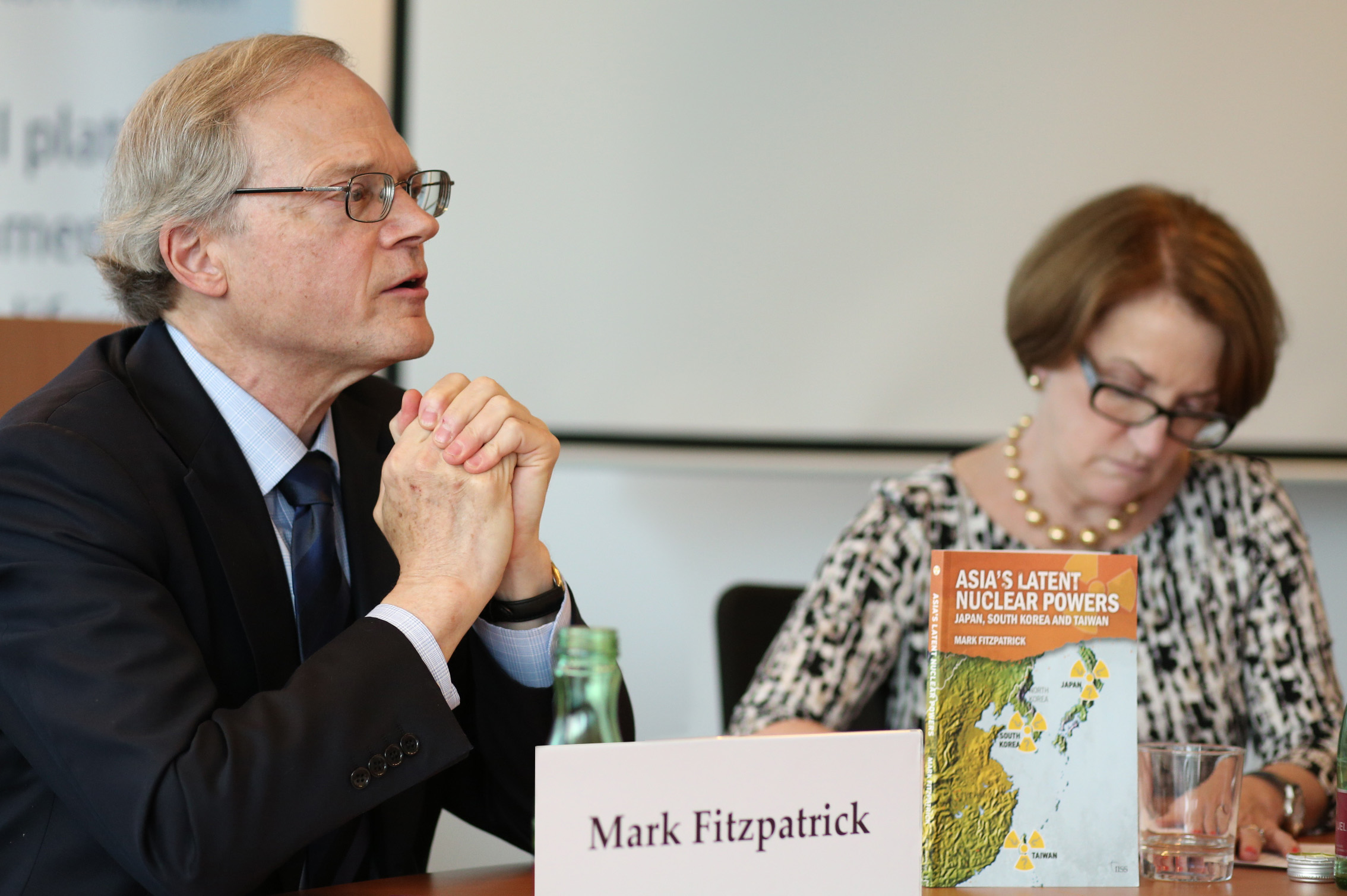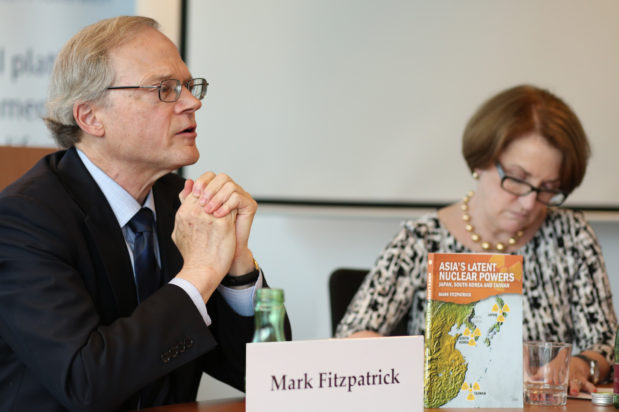
On 10 June 2016, the VCDNP hosted Mark Fitzpatrick, Executive Director of IISS-Americas and Head of IISS Non-Proliferation and Nuclear Policy Programme, for a discussion on his book entitled Asia's Latent Nuclear Powers: Japan, South Korea, and Taiwan.

Fitzpatrick provided an overview of his research findings and commented that the basic premise of the book was nuclear deterrence. He cautioned against the idea of "the more the better" and argued that it ignored the basic problem of proliferation cascading. Similarly, advocating nuclear proliferation during the US presidential campaign could harm the credibility of the United States' extended deterrence. He emphasized that his book was not predicting that Japan, South Korea or Taiwan would develop nuclear weapons. Rather it focussed on what the concerns of these three latent nuclear powers could be, and how the international community could reinforce their confidence in existing security assurances.
Fitzpatrick argued that while the traditional focus with respect to potential proliferation was on “rogue” states, such as Syria and Iraq, his book dealt with what he terms “an insider challenge” from states currently under the US security umbrella, such as Japan and South Korea. Of the three entities described in his book, he argues, South Korea has the greatest likelihood of treading the nuclear path. He highlighted that should any of the three governments decide to develop nuclear weapons, it would face a number of challenges that would profoundly affect its economy, as the decision to go nuclear would invoke economic sanctions, create political isolation and trigger national and international security challenges by creating a security dilemma. It could even provoke a pre-emptive strike by an adversary.
While looking at potential nuclear proliferation from a realist perspective, Fitzpatrick highlighted that Japan, South Korea and Taiwan all faced threats from their respective enemies, but had not gone nuclear. Fitzpatrick cited Japan as an example. Japan had not opted for nuclear weapons even after the North Korean tests. However, he noted that Japan had broken the taboo against talking about a nuclear option.
While many reviewers considered the word "latent" as provocative, it remained a fact that Japan, South Korea, and Taiwan are threshold nuclear powers by virtue of their robust civilian nuclear energy programmes. This latency has been present in Japan with “intent”, he argues, citing examples of when Japanese officials have more or less said so. Fitzpatrick referred to it as a quasi-hedging strategy that helped Japan push for stronger US security commitments.

Responding to a question about establishing a nuclear-weapon-free zone (NWFZ) in the Northeast Asian region, he argued that it was a double-edged issue that needed to be assessed for its merits and demerits. He added that the concept of a NWFZ could undermine extended deterrence and that perhaps Japan might not support the idea of such a zone in the region.
In comparing the success stories of Japan, Taiwan and South Korea in terms of non-proliferation with the failure of non-proliferation in the cases of India, Pakistan and
Israel, he explained that success had materialized due to the consistent application of all tools of diplomacy, and that, in the latter later cases, there had been an inconsistent approach; hence, the failure of the non-proliferation regime in those instances.